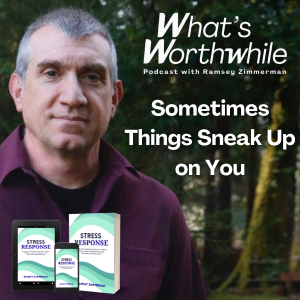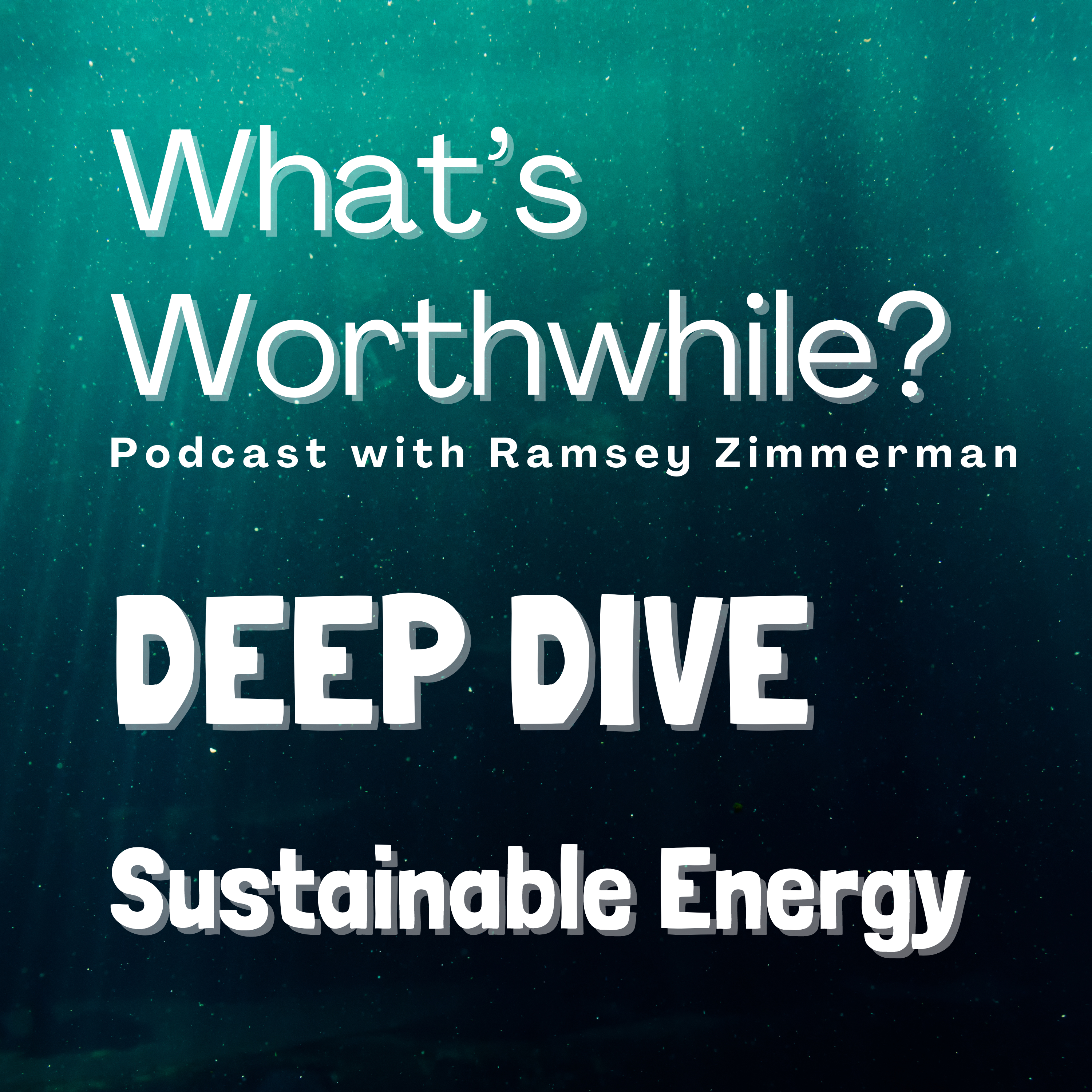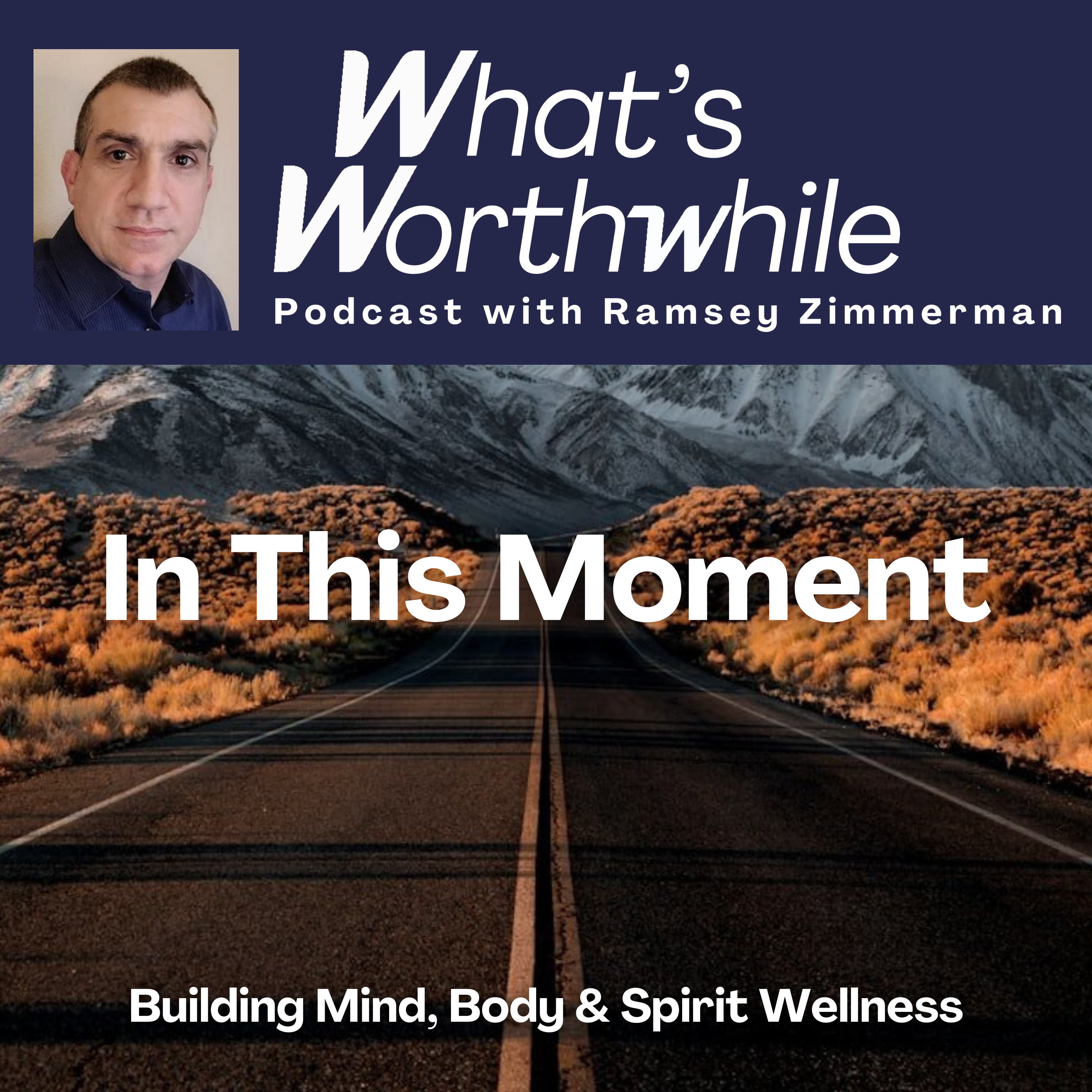Episode Transcript
[00:00:00] Speaker A: Hey, brothers and sisters, mothers and fathers, daughters and sons, friends old and new. It's ramsay here. I've been thinking a lot this week about when it's worthwhile to speak up and when to stay silent. I'm a quiet and shy person by nature. I do find in conversations with five people or so. I also do find in front of any number of people when I'm on stage with a microphone in my hand. When I'm in a group of 15 to 20 people, though, it's really hard for me to interject. I usually just let the other people talk clearly. They want to say the things that they want to say more than I do. Lately, I've felt like I need to speak up and say things out loud. I'm making efforts. There are all kinds of conflicting cultural messages regarding speaking versus silence. Let's rattle off a few. Silence is golden. That's a golden oldie. Children should be seen and not heard. Did that ever work? And there's the sound of silence. Hello, darkness, my old friend. I've come to talk with you again. Yeah, that's not creepy. Lots of old advice to stay silent. Nowadays, speaking out is maybe more encouraged. The TSA at airports say, if you see something, say something regarding social justice. Some say silence is violence, meaning that if you witness racism or other offenses and you stand back and don't call it out, then you may as well have committed the offense yourself. On a similar note, I recently heard someone assert that silence is consent, meaning that if you see something or learn of something that is morally objectionable to you and you don't say anything, then your silence gives tacit agreement or approval. So perhaps we've moved into a cultural phase where we can agree that we should speak up. I like the sound of that. I want to speak up, but I'm concerned it's not that simple. Because what happens when we want to say meaningful things that not everyone believes in or agrees with? How are those messages delivered? How are they received? Often not well. We've got hot button issues today. Abortion, free speech, elections, climate change, to name a few. It's often considered impolite to talk about religion or politics. Does that stop people from talking about those things? Maybe it stops them from talking about those things face to face with people that they know or think they know will disagree with them. And hot button issues, how are they often delivered emotionally? Often with negative emotions like fear or anger and resentment or outright hatred. Hatred. That's the really tough one. There's even a term for it, hate speech. No one can precisely define hate speech. Hate speech is in the year of the beheer, if you'll allow the butchering of that old cliche. In Canada right now, they are even floating legislation that would make crimes motivated by hatred punishable by life in prison. That points to the importance of motivation in both speech and action. Are words and actions motivated by hatred and fear, or are they motivated by love and courage? I want to speak and act out of love, not fear. I find that fear leads me to silence and inaction. I can honestly say that I don't have any hatred in my heart. I don't hate anyone. I've gotten some really precious advice recently from people that I respect and care about. I'd like to share some of it with you. One person said that people love the darkness and don't love the truth. Because the truth dispels the darkness. Darkness is the absence of light. It allows us to imagine or believe whatever we want because we don't see the truth. People like that don't want to see the truth. Another person lovingly confronted me and reminded me that all this God talk can be a real turnoff for many people. I hear that. And like I've said before, I don't want to tell anyone what to think or believe. Yet another person shared their perspective. They relayed the importance, the critical nature, of loving your neighbor as yourself if and when you attempt to speak the truth in love. Speaking out in love often isn't easy. Especially when it is about a hot button issue, or about religion or politics, or when it is in the presence of people who probably don't think the same way or the same things? Some examples how do I tell my friends on the right that yes, even though the climate has been changing literally forever, and yes, people in the 70s were talking about global cooling, that we still need to move to a low carbon, renewable energy infrastructure because burning fossil fuels until they're gone is making everything in the natural environment worse. And how do I say to my friends on the left that three years, four into the COVID era, the science is saying that masks didn't work, the vaccines are neither safe nor effective, and the government responses made everything worse? I've got links in scientific papers galore to back that up. Did I just push some serious red hot buttons? I didn't even mention my faith in God, but I assure you, I speak in love. This is blatant love speech, not hate speech. I want the best for you and for the world. One final point. A lot of people these days encourage others to speak their truth as if we each have our own truth. I'd like to amend that just a bit. I'd like to encourage people to speak their understanding of truth. I believe there is a single truth problem is that no one can perceive or describe exactly what that truth is. So we all have to do our best to discover it, understand it, and speak it lovingly. And for today, that is enough.
[00:05:18] Speaker B: Thank you for asking. What's worthwhile? Visit what'sworthwhile.
[00:05:21] Speaker C: Net to learn more about me, ramsey zimmerman, and please provide your name and email to become a supporter. I'm asking for prayer, advice, feedback and connections.
[00:05:32] Speaker B: The what's worthwhile podcast is on Spotify.
[00:05:34] Speaker C: Apple, iheart, and Amazon. You can also listen at what'swhild.
[00:05:39] Speaker A: Net. Thanks.


